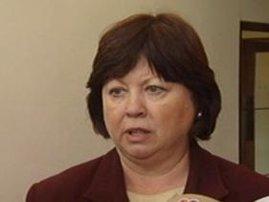INMO delegates propose 'third way' on health reform

The INMO's annual conference last week rejected the controversial Croke Park deal and proposed a 'third way' in reforming the health care system. By Sara Burke.
Over 300 nurses and midwives gathered in Trim for their annual delegate conference from the 5th to the 7th of May. The first motion considered by the conference was to unanimously reject the Croke Park deal. So why did they do this and what are they going to do now?
The Irish Nurses and Midwives Organisation (INMO) executive outlined four reasons for rejecting the deal:
1.There is no guarantee against further pay cuts – the promise of no cuts to pay is conditional
2.They are not willing to accept a reduction of 6,000 staff (on top of 3,000 staff cuts since the public sector hiring embargo)
3.They are not willing to accept 3,500 bed cuts. This proposition is in the McCarthy deal, and the terms of the Croke Park deal broadly accept those of the McCarthy deal.
4.They cannot accept a continued moratorium on the hiring of new staff.
The issue of the staff moratorium had the strongest support from the floor of the conference. The atmosphere was very heated and passionate, full of very articulate nurses and midwives, none of whom opposed the rejection of the Croke Park deal. Most of the inputs from the INMO executive and the floor were focused on under-staffing and the stranglehold the moratorium is placing on services and patient care.
According to one director of nursing, the eight unfilled posts at her workplace have forced her to choose between stopping a wound management clinic for older people living at home, stopping an Intellectual Disability (ID) clinic for families with newborn children with an ID, or not providing palliative care for people dying in the community.
The INMO leadership were very keen to state that although they are recommending a rejection of the Croke Park deal, industrial action is not an option. There was no appetite for strike – nurses have experienced two cuts in wages between levies and pay cuts already. They want to go into discussion with the Department of Health and the HSE on an ‘alternative approach’. Liam Doran spoke about a ‘third way’ between rejection and acceptance of the Croke Park deal. This would involve accepting the deal but immediately beginning dialogue, and if that is unsuccessful going back to members for a renewed mandate.
‘The alternative approach’ is the INMO’s view of what the health system should look like in the future. Instead of battles over pay and conditions, it seems that nurses are now playing a long game – proposing an integrated care model with patients and the public at its centre, a health service where access is based on need and care delivered locally, and a stronger role for nurses.
The INMO also made some very specific recommendations, including immediately lifting the staff moratorium, introducing an early retirement scheme for excessive managers in the HSE and a graduate employment scheme for newly trained nurses.
Many of these proposals, for example redeployment and flexible working hours, are contained in both the Croke Park deal and the INMO’s own alternative. However, the alternative has some other elements that run contrary to current government policy. These include making county hospitals localised centres of excellence, giving directors of nursing and other allied health professionals their own budgets, and improving access for nurses to diagnostics and day care. The proposals are also very critical of the health service’s slowness in adopting generic drugs, its practice of spending public money on private care (including the NTPF and tax reliefs), and the failure of HSE management to engage with nurses and unions on change. The media’s demonisation of public sector workers also came in for criticism.
Members also discussed the problem of graduate unemployment. Between 2010 and 2011 1600 nurses will graduate, with not one full-time post for them in Ireland. Ten years ago the Department of Health was trawling the globe recruiting nurses abroad. After the 1999 nurses’ strike the government promised to train more nurses, training that costs between €80,000 and €100,000 of public money. Despite the fact that it was government policy to train these nurses, at the current time they are likely to emigrate or end up on the dole, because of the staffing moratorium. Many nurses are ageing and will need to be replaced so the government’s unwillingness to find a way to keep them in the country seems very shortsighted indeed.
